THE BEST MOVIES OF 2021
Ryan Garasich 2/13/22
#10 BELFAST
When I first saw the Oscar buzz for Kenneth Branagh’s semi-autobiographical passion project my eyes rolled so hard they nearly detached from my brain. This is not the type of movie I typically enjoy very much. Everything from the trailer to, even, the early reviews screamed that this would be toothache inducing, saccharine, schmaltz of the highest order. And there were moments of the film that it tiptoed dangerously close to that territory, but it thankfully never took the full plunge. I loved this movie, to my surprise. Every beat and joke and smirk and tear along the way was backed by immense joy and my reluctant respect. There is something to be said that maybe this was just the type of movie I needed right now. After two years of a long war against a seemingly endless virus, paired with a crop of films last year that, while great, were all unrelenting bummers, it just felt nice to feel nice. Branagh’s film wraps us in a warm blanket and says “forget about all that, aren’t grandparents wonderful?” “Never mind all that pain and sadness, Ryan, look at what the power of song can do for heartache.” A movie about people being displaced due to the violent religious upheaval of 1960’s Ireland should not count as escapist cinema, and yet here we are. And even more than that, it was therapeutic. It could be likened to that moment of serenity when someone turns off the vacuum cleaner. Your brain has adjusted to unpleasant sound and you no longer even realize it until it stops and that wave of pleasant tranquility comes rushing back. That is what seeing Belfast in the midst of all of this real world plight felt like to me. The ensemble cast is all excellent, with Ciaran Hinds standing out as particularly natural, and the young Jude Hill as an absolute revelation. Critics of the film may say that it glosses over the real danger and complexity of the situation the characters were in, and it absolutely does. But it gets away with it because the story is told, and the movie cleverly shot, from the knee-high perspective of our adolescent lead. This movie isn’t a deep analysis of “The Troubles” of Northern Ireland. That simply provides the backdrop and impetus of events of a film about family. It’s a bracingly present and heartfelt excursion into the world and mind of these characters, as remembered by a filmmaker decades later. It’s allowed to be glossy, as that is the power of memory. To carve out of the blustering clamor of life, a greater truth, spoken as a whisper.
Available for rent on Amazon Prime and Redbox
#9 PIG
Writer/director Michael Sarnoski’s unbelievable debut film is a masterstroke of subverted expectation. Just looking at plot and casting; Former hotshot chef and now Oregonian recluse Nicolas Cage’s truffle hunting pig is kidnapped and he must venture back into his old life to retrieve it. It almost sounds like that sentence should end with “at all costs.” It’s a tailor made, straight to DVD, revenge flick that Cage has made dozens of. Right? OR MAYBE, it’s a brooding mythology tale, anchored by the most checked performance of Cage’s career, serving up the most tender and thoughtful (cruelty free) climax of the year. Imagine my surprise when it was the latter. Cage’s performance is so integral to the film because there is so much backstory left unsaid. When his character (former chef, Rob) ambles back into the cutthroat high end cuisine scene of Portland after years of being away, his name carries weight. Every character he interacts with does so trepidatiously, with the reverence of a legend or, better yet, a ghost. None of this works if you don’t believe Cage’s gravitas, or if you are unconvinced by the layers of history and legacy hiding beneath his gruff and filthy exterior. It’s subtle and unfortunately underappreciated work, he does here, and it’s the hinge of the entire film. The movie IS still a revenge thriller, though. It checks all the boxes. Mysterious lead with a checkered past. A secret we are dying to know more about. Seedy underground exploits. And a final face to face confrontation with a pompous, powerful antagonist. What makes "Pig" unique is how it explores those concepts and never gives you what you want, but instead, what you did not realize you actually wanted. I do my very best to not spoil in my year end reviews and I will continue to honor that, but just know that this movie does not concern itself much with bloodshed and the entertaining and cathartic convenience of simple eye for an eye vengeance. This film explores personal gifts. And how we should pin our backs to our unique talents in time of conflict. And how deep within even the most fractured members of our society lives a beating heart begging for release. And finally, that we can succeed in our mission through virtue, but that success isn’t always what we hope for. “Pig” was the most pleasant surprise of 2021.
Streaming on Hulu
What do you want from me? It’s one half of my favorite directing duo, adapting my favorite Shakespearian play, with two of my favorite actors in the lead roles. Of course it’s going to make this list, my dog is named after a character in the play. Let’s talk real merits, though. This is the most visually stunning adaptation, not just of the Scottish Play, but of perhaps any stage production adapted to screen in the history of cinema. The arresting black and white is gorgeous but the design gives the film this married feeling of stage and screen, seemingly exceeding the potential of both. It is small and large at once. In doing so it feels like stage production, but one you find yourself a part of rather than watching. There is no fourth wall, or even walls one through three to be found here. You are a character within this minimalistic, yet jarringly surreal world. The cinematography was perhaps the best of the year, likewise with production design. Denzel and last year’s Best Lead Actress winner Frances McDormand are both spectacular as the treacherous couple but the best performance of the film belongs to the eerie and circus-like Kathryn Hunter portraying all three witches. Her physicality and voice work are utilized perfectly to add the terrifying mystique drenching the film. No one has ever left a production of Macbeth, in the entirety of its 400 year history, and said “That lady playing The Weird Sisters was my favorite part” but that may no longer be the case. In the end, there are countless iterations of this play set to screen, from classic to reimagined, and across languages and generations, yet Coen and company found a way to make this one feel essential. It is altogether different from the rest. The technical side does a lot of the heavy lifting in that regard, but the choice of making Lord and Lady Macbeth older than usual, I felt, gave the story slight but significant new meaning. In the original text, the Macbeth’s are power hungry and mercurial, tempted by fateful promise to jump the line and murderously expedite their rise to power. Making them older adds to their urgency, lends understanding to their circumstance, and makes it somehow all the more tragic. It’s not just different from the rest, but also superior.
Available on Apple TV
#7 WEST SIDE STORY
Back to back remakes, I know, (actually back to back Shakespeare adaptations as well) but what an amazing bounce back year for musicals! “In the Heights”, “Tick… Tick… Boom” and “West Side Story” all absolutely terrific. And “Annette” was also a movie. I guess it isn’t all that surprising that Spielberg would succeed, even in his first time endeavoring to make a musical, but I doubt many could have predicted it being THIS terrific. The movie is dynamic and crackling with life. It is beautifully staged and choreographed and just gorgeously captured. The big numbers all hit and even though changing the position of “I Feel Pretty” in the film was an uncharacteristic miss, everything feels like this version is somehow an upgrade from the masterful original that won 10 Oscars, including Best Picture, 60 years ago. The central cast varies from good to outstanding, with Ariana Debose’s Anita and Mike Faist’s Riff truly standing out, but as an ensemble they are flat out brilliant. Debose is the favorite to win Best Supporting Actress just like her Rita Moreno did in the original, but Faist finds a greater depth that was never afforded to Riff in previous productions. Rachel Zegler is effortlessly enamoring as Maria and while Ansel Elgort’s Tony might be the weakest of the group, he still delivers magnificently in the most important sequences. Zegler's innocence and Elgort’s towering physicality do deliver undeniable sparks of chemistry. The movie is just a dream to watch and it honestly meets every major beat with full throttle exuberance. The costumes are snazzy, the cinematography is some of the best of the year, the colors are lusciously detailed, and the music is glorious. It’s a version Stephen Sondheim could be please with as he saw the finished cut just days before passing away this past year. A fitting and worthy tribute to him, and a powerful and resplendent film for the rest of us.
Coming to Disney+ on 3/2
Sean Baker is the reigning king of unearthing true modern Americana. In an industry that loves to tell stories of how America used to be or how it wants to see itself currently, Baker bravely holds up the mirror of reality to a denial driven medium. He can do this without reproach because the sincerity and truthfulness of his characters resonate so deeply as to make them unassailable. In each of his films we see characters shoved to the margins of the masses, but as his body of work grows we realize these people are not so ancillary but instead, quilted together, make up the mosaic of our true identity. His latest subject is Mikey Saber, played exquisitely by Simon Rex, a former porn star returned to his long forgotten small town of Texas City. Mikey is affable enough but also shamelessly self-serving and utterly incapable of feeling any personal responsibility. We learn in the first 10 minutes of the film that our “hero” is in fact our villain, but we are given no respite from following him through his deceits for the entirety of the runtime. There are no moments of saving grace or deeper understanding of his character. Because he never aims to understand himself. He lies and embellishes his accomplishments, yet there is a weird earnestness to the proceedings. He is narcissistic but not intentionally malicious. There seem to be no ends to his means outside of self-preservation and a padding of his irreparably broken ego. His lies he tells, how quickly he is to interject his modest celebrity, and his propensity for deflecting all blame, all serve only his own fragility. It’s a singular character study and this is all without mentioning a single other character, several of which could carry their own film. Most notable is the nearly 18 year old girl, Strawberry, who is the aim of the nearly 50 year old, Mikey’s, affection. She represents that awkward cross-section many young women exist on between maturity and naiveté. She is smarter, brighter, deeper, and certainly better than Mikey and, yet, considerably less wise. You unfortunately can’t fake wisdom, you simply have to earn it. She falls prey to his promises and will likely be the next victim of his uncalculated chaos. The movie has so much insight to offer while also being outlandishly funny. All of this has not even scratched the surface of the psychology of this movie. From the subtle but very intentional political commentary, to the examination of what “physical endowments” can have on the masculine psyche and confidence, this movie is deceptively weighty, while also being a trashy good time.
Purchase only on Amazon Prime or Redbox
#5 THE LAST DUEL
Tragic that the majority of the headlines surrounding this movie were regarding Ridley Scott’s complaints about its box office take, because it’s his best film since “Gladiator” and maybe since “Blade Runner.” Scott admittedly came off as an old man cursing at clouds, but he is right in that this movie was shamefully underseen. The story follows the accusation and eventual duel to determine guilt or innocence regarding the rape of a knight’s wife in 14th century France. It is the narrative structure is the key to the film’s greatness, however. The story is told “Rashomon” style, in that we get the events as told three separate ways by the husband (a great Matt Damon), the accused (an even better Adam Driver), and the wife and victim herself (an underrated Jodie Comer). I will not be so bold as to say that the “Last Duel” did it better than “Rashomon”, because it’s “Rashomon”, but I do believe this structure adds more to the overall value of the film in “The Last Duel”. Without it we get a good but not great, by the numbers, story with admittedly terrific action sequences. But the structure allows this movie to investigate the importance of unspoken nuance in courtships. To delve deeper into how characters' emotions, motives, and internal composition determine how the truth reveals itself to them. This is evidenced best by how the wife character is portrayed in each story. In the husbands rendition she is shy and demure so as to almost border on childlike innocence. In the accused story she has much more agency and depth but also much more direct and self-serving in motive. Finally in her own story, which the film makes point to suggest is the closest to the truth, we see her as a mix of both. It is this triple performance that makes Comer’s turn the most intriguing of the three leads. Every scene provides deep and previously unexplored meditations on intent, consent, and the messy misunderstanding sometimes inherent to sex. This is in no way an effort to exonerate the perpetrator, but instead to also indict the other males that benefit from this broken system that’s remnants are mind-blowingly still reaching 600 years into today. This is all revealed in the final moments as the duel ends, our champion is crowned, and our loser is vilified and defiled. In this moment we see how fine the line is between the two and yet how starkly different they are treated, all the while the TRUE victim and hero is again relegated to background. Her story no longer about her. The final gut punch from a film that finds new, small indignities in every scene it carefully weaves. I am probably higher on this film than most anyone else I know, but it really is one of the great movies of the year and the single most patient and detailed examinations on the failings of a system that views things first and foremost through masculine eyes.
Streaming on HBO Max
Paul Thomas Anderson’s last film, “Phantom Thread’, topped
my list in 2017. The greatest working American director returns again with a
strong showing with the unquestioned funniest film of the year, “Licorice
Pizza.” The plot is barely worth mentioning as it is virtually inconsequential.
This is a hang out movie and a coming of age tale that feels deeply personal
and vibrantly colored with detail. Through the film we are hanging out with 15
year old Gary and 25 year old Alana as they attempt to navigate their lives and
friendship to varying degrees of success. PTA places this massive
responsibility on first time actors Cooper Hoffman (son of regular PTA stalwart
Philip Seymour Hoffman) and Alana Haim (youngest sister of the band Haim, which
Anderson often directs music videos for). A personal film entrusted to personal
relationships and both are astoundingly good in their roles. This continues to
be the most underrated talent of Anderson’s impressive arsenal that he can get so much from his actors. Where other auteurs, old and new, use their actors as
pawns, blowing in the winds of their greatness, Anderson mines thespian gold at
every opportunity. This film also boasts far and away the best supporting and
cameo performances of the year. There are a dozen memorable small parts but
none are as impressive as Bradley Cooper and Harriet Sansom Harris. Both crazed
and hilarious in equal but different measures. We are treated to this circus of
delightful characters and interactions while the lovelorn Gary futilely chases
after Alana's affection. Alana meanwhile laments her arrested development and seeks to
mature only to be beaten back unceremoniously to her default state of untapped
potential. Alana is a troubling character who, because of chance, finds herself
glommed on to an honestly problematic codependent relationship. And while I
LOVE 98% of this movie this is the elephant in the room. So just know that this
movie is outstanding in nearly every aspect and deserving of all of its lofty
praise. (If you like the movie stop reading here) HOWEVER…..
…..SPOILER SPOILER SPOILER SPOILER SPOILER…..
The movie soils itself in its literal final moment. There is
nothing wrong with Gary’s crush on Alana, as all teenage boys crush on adult
women. And the movie does an amazing job contextualizing the extent of their
relationship until the very last exchange. Alana’s declaration of love as she
follows him off into the sunset smacks or romantic intent. For the only time in
the movie, but it is undeniable. Had the movie ended with the kiss and Gary’s
“Mrs. Gary Valentine” line, met with Alana’s chastising him, we have a fine and
fitting conclusion. But that final moment undermines everything previously
established and opens the film up to deserved ridicule. I am not the type of
person that needs his movies sanitized for him and completely morally
upstanding. My issue is that this moment flies in the face of everything
established before it. We are painted into a corner of either admitting that
our lead female is fundamentally flawed, thus sullying all the time we were
rooting for her. Or, we have to admit that this was a rare but
definite misstep from Anderson that misrepresents the nature of the scene and
their relationship. Either way it does no favors to the film and unfortunately
stole some of the joy I had about it. That said, it obviously doesn’t
completely detract from the otherwise outstanding movie.
In Theatres
#3 SPENCER
Pablo Larrain has crafted two sensational films about troubled and fascinating famous women, who despite their influence had very little control over their own lives, Both of those movies have landed the number three spot on my year end list of best films of the year. Coincidence? Almost certainly. But following Jackie, his achingly poetic detailing of Jackie Kennedy in the wake of his husbands assassination, he gives us a similar but altogether different examination of Princess Diana. The action takes place over just one weekend at the Christmas retreat of the royal family, where Diana finds herself near the end of her psychological tolerance and similarly her marriage to Prince Charles. In this short time, and narrow confines, we see the extent of the toll exacted on Diana by the cold, priggish nature of the British royals. The torment is levied under the guise of propriety, obeisance, and tradition, but feel like calculated attacks at the weary Diana. We see a portrait of the women no one has ever dared portray. Despite constant media hounding during her life, and unrelenting treatments on her after her untimely death, only Larrain attempts to show Diana in full view. We sympathize with her, while also understanding that she is imperfect, even nearing on unstable. “Spencer” bids to explain what the roots of her struggles may be. Among the many things this film is, it is also an unflinching and caring profile of person afflicted with an eating disorder. Psychological disorders rarely have one reason for their manifestation, but the idea of control is widely accepted as a root cause. Diana’s every move, every word, and even her wardrobe are calculated for her to the smallest of detail, and her last bastion of control is what and when she eats. Larrain argues that Diana wanted to be a mother to her children and wife to her husband. Instead she became an idol to her country and plaything to her in-laws. She searched high and low throughout the nightmare of her existence and the beautiful prison of her surroundings searching for ever elusive scraps of warmth. This is horror film making masquerading as a biopic. And nothing is more satisfying than when the snobbish pretentiousness is called out for exactly how hollow it all is. Diana Spencer’s story is tragic. There is no escaping it. But this film shows the one island of bravery that emerged from the sea of intense scrutiny unfairly placed upon her shoulders. The last stand of a woman taking back the unfortunately little time she had left of her life. Oh and the music was super interesting and possibly the best of the year, and Kristen Stewart was mesmerizing in the lead role. Congratulations to her on her Oscar Nomination and finally shedding the stench of the twilight movies once and for all.
Streaming on Hulu
The opening credits of Ryusuke Hamaguchi’s masterful slow
burn “Drive My Car” roll 40 minutes into the movie and I was already
emotionally spent. Clocking in just a minute under 3 hours in total, this is a
comprehensive portrait of a grieving character that never, for a second, feels
overlong. It’s also the most unique and possibly best screenplay of the year.
Our main character, Yusuke, is a director and stage actor who’s adulterous yet
beguiling wife dies unexpectedly, leaving our hero with no closure on the
situation and no outlet for his frustration. We jump ahead to learn he is
directing a stage production of Chekhov’s “Uncle Vanya” a show he has starred
in before featuring parallel lines to his personal life. At the auditions, in walks
the handsome young actor that Yusuke suspects his wife was having an affair
with. Great. Plot. And a good one. But, this movie is not held to the confines
of plot. The specificity and peculiar flourishes of the screenplay reduce the
plot points to mere signposts along a revelatory journey. The rich tapestry
formed by the idiosyncratic interactions and intriguing side plots fill the
film with a lived in authenticity that no movie this year can attempt to rival.
There are absolutely show-stopping scenes scattered throughout, most of which
are set in the confessional confines of the titular vehicle, but the true
lasting impacts of the film aren’t felt until hours or even days after. I guess
one wouldn’t be shocked that a three hour long film would leave so much
intrigue, but even with the runtime it’s a marvel how deeply the film embeds
itself into its audience. The sheer volume of the issues it tackles and
tactfulness and care it lends to those issues in meticulously exploring them is
astounding. “Drive My Car” is certainly patient. It meticulously stacks its
dominoes as the audience marvels at the lurid design, painfully curious at what
it will look like when they begin to fall. And when finally, in the closing
half hour of the film, we do get our emotional release, it is still entirely
unexpected yet completely satisfying. And it still finds a way to end on a
confounding and debate-sparking final note despite its firm voice. I would be
lying if I claimed I still can fully extrapolate the meaning of every moment of
the film, which speaks glowingly to the complexity and vastness of its themes.
There simply hasn’t been a movie this contemplative in recent memory, and I am
eternally grateful for the meditations it revels in, and also the challenges it
provides.
In Theatres
#1 THE POWER OF THE DOG
Welcome back, Jane Campion, your Oscar is awaiting you right here. “The Power of the Dog” is an intense throwback to small, conflict driven dramas that marked many of the best films in Hollywood’s history. It’s impossible for me to pick my favorite aspect of this phenomenal film, but the screenplay is a rare form of brilliance. It is all show and no tell. It leaves pieces floating in the back of your mind before neatly tying them all together for a gripping and haunting climax. Very few scripts have even been so lean, while also so intricate. There is not an ounce of fat on this movie, and yet very little coalesces until the exact moment it is meant to. Benedict Cumberbatch, in what is my pick for the best male performance of the year, is transcendent as Phil, the prickly roughneck cattle rancher that psychological torments his new in laws, after his brother’s (an also, Oscar nominated, Jesse Plemons) marriage. Marrying in to the family are Rose (a nominated Kristen Dunst) and her son, Peter, (you guessed it, an also nominated Kodi-Smit McPhee). The malicious Phil psychologically bullies the delicate Rose to the point of alcoholism in a series of some of the most artfully crafted conflict scenes I have seen in years. Her son, the effeminate Peter, is a fish out of water in the rough and tumble west and is bombarded with similar assaults, mostly aimed at his softness and perceived homosexuality. Phil eventually, surprisingly, switches course and takes the young man under his wing. Phil is a closeted homosexual in a time and occupation that has no quarter for such lifestyles. He sees in Peter a life he could have had if he had only embraced his truth. He is, at once, enraged by his very existence and captivated by his transparency. An honesty that Phil could never afford himself. Peter is Phil’s ultimate foil. Where Phil is outwardly, almost aggressively, tough and inwardly soft, we learn that Peter is outwardly soft and inwardly tough. We learn this through a final act that begs the audience to re-examine all that we were so sure of before in the film. And not because there is a twist or surprise revelation of some kind, but because we realize that there is so much more intrigue at play than initially promised. The performances are uniformly top drawer, possibly the two best male turns of the year. The directing is pitch perfect. The cinematography is spectacular. But all of it works together without not even a hair out of place, to create a wholly realized poetic western tale. The impeccable film craft displayed here is only outdone by the lasting resonance of its final emotional blows. Come for the diligent mastery of the medium, stay for the awe-inspiring hollowness heaped upon the audience as the credits roll. No other can boast that they have done both so well. The Best Film of the Year.
Streaming on Netflix
And there you have it. My opinion on the best that film had to offer us for 2021. I hope you enjoyed reading the reviews and please feel free to vent your frustrations or lob your praise in the comment section. Also, here are some honorable mentions for you, and if you want my deeper thought on those feel free to comment!
HONORABLE MENTIONS: MOVIES 11-15 IN ALPHABETICAL ORDER
The French Dispatch
The Green Knight
Mass
Tick... Tick... Boom
Titane
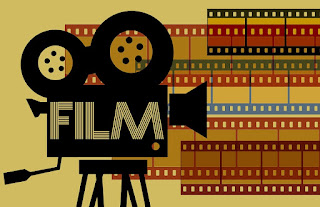
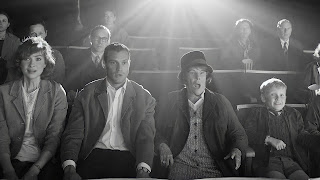
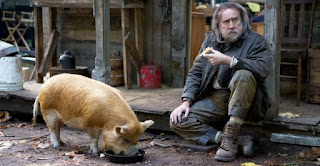


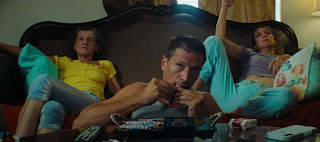
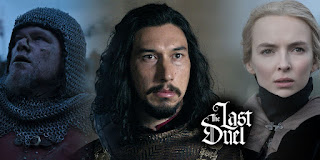







Collins speaks to iGB about GiG’s recent acquisition with Sportnco, and how reaching over 35 markets with an end-to-end resolution has positioned GiG in the business. Sports betting has become a high-profile half of} the rugby league’s revenue and branding. Fantasy sports 온라인 카지노 started as a distinct segment hobby for statistically inclined sports fanatics. But, with the internet, it has advanced right into a multi-billion-dollar business. Gambling has impacts on many features of life – together with employment, revenue and wealth. The launch of HILDA’s latest survey supplies extra evidence to help inform selections on gambling policy.
ReplyDelete